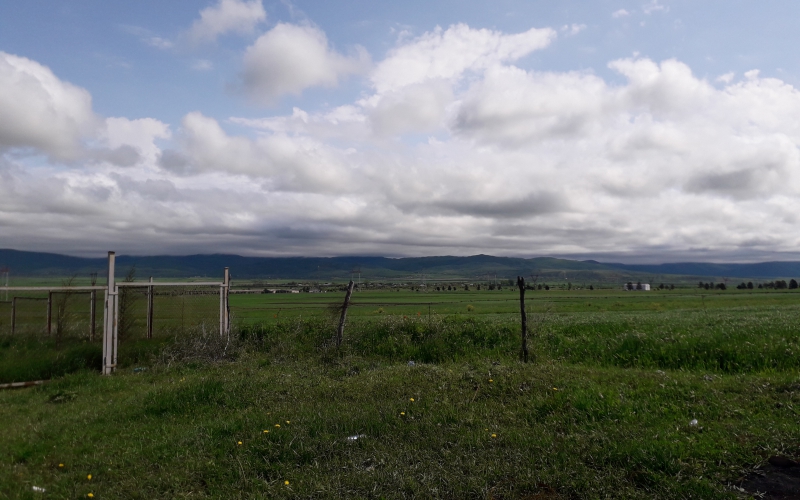Creeping Borders and Abductions: "The Actions of Occupying Forces in Georgia Constitute Gross Human Rights Violations," Says Civil Society Organizations

Members of the Georgian Coalition for International Criminal Court- Article 42 of the Constitution, Georgian Young Lawyers’ Association, Human Rights Center, Justice International, The Georgian Center for Psychosocial and Medical Rehabilitation of Torture Victims (GCRT), Human Rights Priority, International Center on Conflict and Negotiation and the Norwegian Helsinki Committee, released a joint statement highlighting the situation in Georgia and calling authorities to stop human rights violation and take measure against these violations. Read the statement here,
Tbilisi – 21 August 2019– "The Georgian Coalition for International Criminal Court (GCICC) condemns the continual expansion of the Administrative Boundary Line (ABL) inside Georgia’s territory by Russian and de facto South Ossetian authorities, an illegal process which involves mass human rights violations."
"Soon after the end of the 2008 August War, the government of the Russian Federation started a so-called “borderization” process in Georgia’s territory, in gross violation of the rights of the local population. The Russian border guards and representatives of the de facto administrations of South Ossetia/Tskhinvali Region and Abkhazia are arbitrarily installing border markers, fences and barbed wire alongside the occupation line. These illegal actions aim to physically separate territories administered by the de facto Abkhazian and South Ossetian authorities, from the rest of Georgia. By 30 November 2017, over 30 incidents of borderization were observed in Georgia which impacted 33 villages alongside the dividing line of South Ossetia and seven villages alongside the dividing line of Abkhazia.
On 7 August 2019, the arbitrary installation of artificial barriers resumed along the Administrative Boundary Line in the village Gugutiantkari, a process which is still ongoing. As a result, houses of two families and their agricultural plots, which represented their main source of income, became occupied. The families were forced to dismantle their own houses in the strict time limit set by the occupying forces and bring the parts to the territory controlled by Georgia. The local population fears that as a result of the continual erection of barriers, other houses will also be captured in the occupied territories. According to the information provided by the local population, the irrigation system might fall into the occupied territories and the population may lose access to water as a result[1].
The illegal detention of Georgian citizens by the representatives of the border forces of the Russian Federation are continuing as well. On 17 August 2019, in the village Akhalubani in Gori municipality, the representatives of military forces of the Russian Federation abducted seven local residents under the charges of the so-called illegal crossing of border. According to various media sources, they were detained at the church located along the ABL and are now detained in Tskhinvali temporary detention facilities. The family members do not have information when they will be released. According to the information provided by the local population, there are no warning and so-called border signs in the villages. Therefore, local residents may be taken from anywhere. The representatives of the border forces of Russian Federation abducted one more local resident from the village Artsevi in Gori municipality on 18 August, charged with illegally crossing the border.
Restriction of freedom of movement and illegal detention along the Administrative Boundary Line have been ongoing for several years. According to the Public Defender of Georgia, between 2011 and 2018, 2,706 individuals were victims of illegal detention/abduction along the ABL of Abkhazia and South Ossetia/Tskhinvali Region. These individuals, subsequently detained in facilities in the occupied territories, frequently face ill-treatment and are deprived the right to contact their families.
The continuing systematic and severe violations of fundamental human rights by Russia and de facto governments of Abkhazia and South Ossetia/Tskhinvali Region may be qualified as persecution of ethnic Georgian civilians. These unlawful acts by occupying forces directed against the civilians living along the dividing line are organised and regular, and may amount to crimes against humanity."
"In light of the situation described above, we call on:
Government of Georgia:
- Use every diplomatic and international legal mechanism in order to end the occupation of Georgia’s territory by the Russian Federation and stop severe violations of fundamental human rights of Georgian citizens;
- Instate patrolling in the villages situated along the dividing lines of Abkhazia and South Ossetia/Tskhinvali Region where illegal detention and borderization take place;
- Ensure human security in the highest-risk, most dangerous places through relevant informational and educational work.
Russian authorities:
- Stop occupation of Georgia’s territory and respect the sovereignty and territorial integrity of Georgia;
- Stop illegal borderization and mass human rights violations, including the illegal detention of citizens of Georgia and restriction of their freedom of movement.
International community:
- Take measures against the mass human rights violations in Abkhazia and South Ossetia/Tskhinvali Region and secure access for their representatives to conduct monitoring in the occupied territories.
International Criminal Court:
- Observe ongoing processes, analyse the crimes and react accordingly.
- Holding the individuals responsible for international crimes committed during the 2008 August War accountable may have a preventive effect on the ongoing violations. Therefore, the ICC must ensure the completion of ongoing investigation in a timely manner and issue arrest warrants against those who bare the greatest responsibility for these crimes."
Member Organizations of Georgian Coalition for ICC:
Article 42 of the Constitution
Georgian Center for Psychosocial and Medical Rehabilitation of Torture Victims (GCRT)
Georgian Young Lawyers Association
Human Rights Center
Human Rights Priority
International Center on Conflict and Negotiation
Justice International
International Organizations:
Norwegian Helsinki Committee
[1] For more information on the consequences of this illegal process of creeping borders, see FIDH-HRIDC 2018 report “Living on the edge”.
Read the joint statement by civil society highlighting the situation and decade long wait for justice in Georgia.
